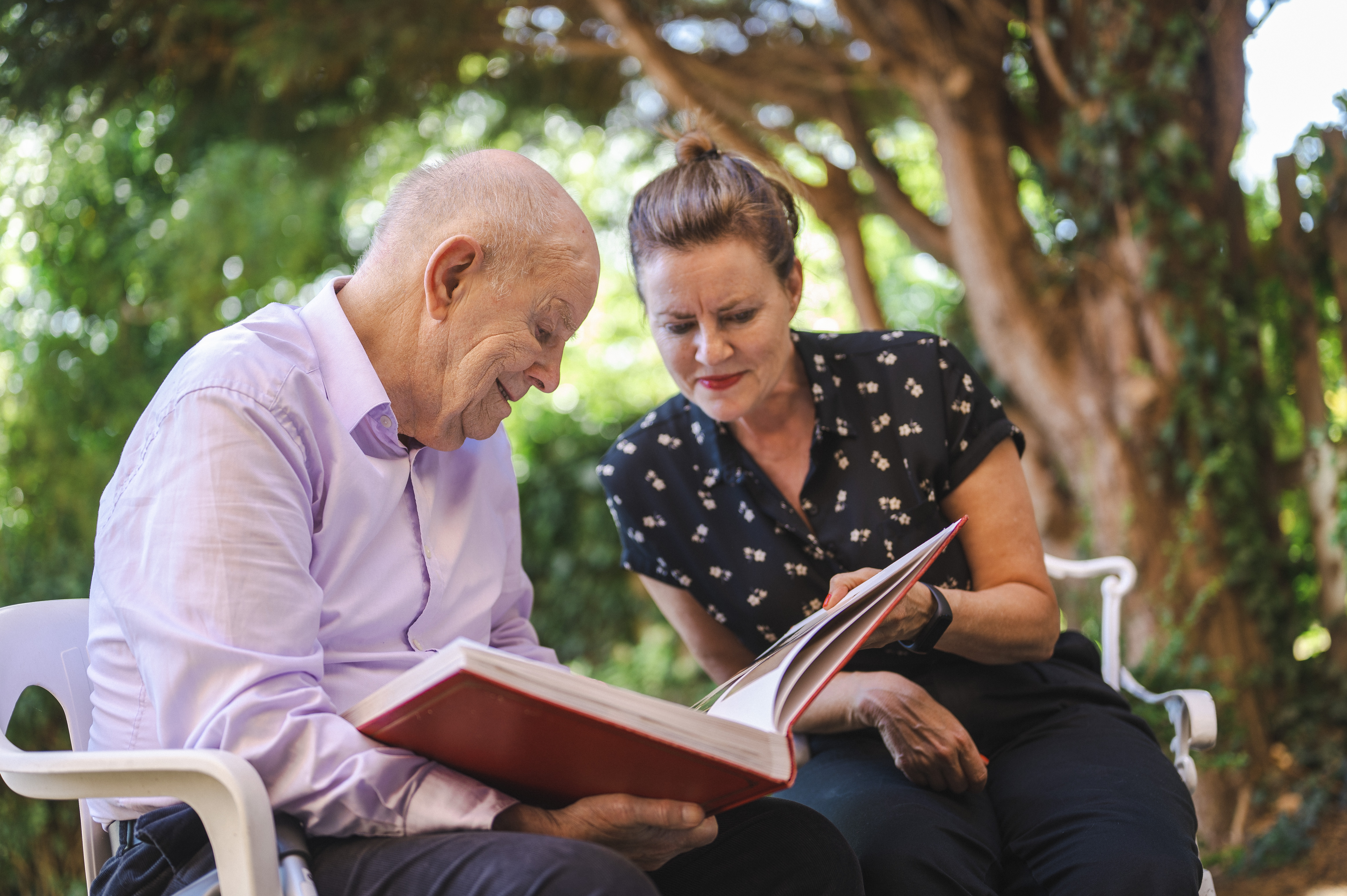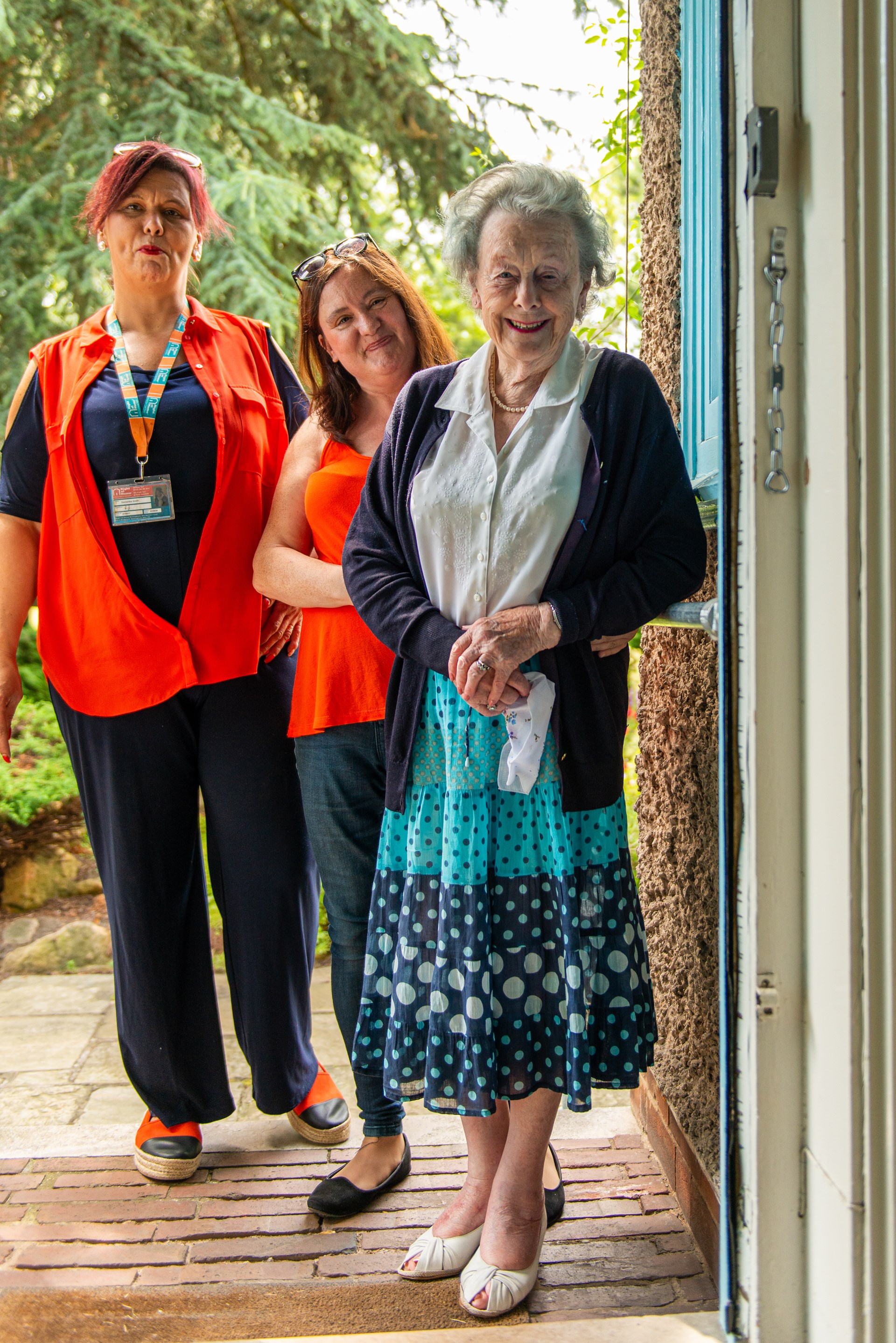Receiving a diagnosis of Dementia
Dementia: It's not a Sentence

Published: 26/03/2025
We understand the fear and uncertainty that accompanies a diagnosis of dementia. It's a moment that can feel like a life sentence, a point of no return. But we're here to inform you, with absolute confidence, that it isn't the end of the world. It's a shift, a new start that can still be of great value, joy, and meaning.
Dementia: A Shift, Not a Sentence
First, it is instructive to understand that "dementia" is a broad term, not a diagnosis. It encompasses various conditions, including Alzheimer's disease, vascular dementia, Lewy body dementia, and frontotemporal dementia, each with its own path and characteristics. Therefore, the diagnosis is not an isolated event. It is more of a launching point for understanding one's situation and crafting a plan for living well.
The initial shock of the diagnosis can be accepted. Sorrow, fear, and worry are appropriate. However, ruminating on the negative is not helpful. Instead, we must consider what we can do and what remains.
Living Well with Dementia: A Multifaceted Approach
The objectives are to optimise cognitive function, maintain independence, and enhance quality of life. This is done comprehensively, involving medical, lifestyle, and psychosocial interventions.
- Medical Management:
- Although there is no cure for most dementias, medication can alleviate symptoms. For instance, cholinesterase inhibitors and memantine may help slow cognitive decline in some individuals with Alzheimer's disease. Managing underlying medical conditions such as high blood pressure, diabetes, and high cholesterol is essential, as these conditions can worsen cognitive impairment. Regular reviews and adjustments of medications are necessary to ensure the best possible management.
- Working with your medical team will be critical for long-term health benefits.
- Lifestyle Changes:
Physical Exercise: Regular physical exercise has been known to improve cognitive function, mood, and sleep. Aim for a minimum of 150 minutes of moderate-intensity physical activity each week.
- Cognitive Stimulation: Engaging in mentally stimulating activities such as puzzles, crosswords, reading, and learning new skills could possibly maintain cognitive function.
- Healthy Diet: A healthy diet containing fruits, greens, whole grains, and omega-3 fatty acids is paramount for brain health. The Mediterranean diet has been shown to reduce the risk of cognitive decline.
- Sleep Hygiene: Sleep is important for good brain function. Adopt a routine sleep pattern and an evening wind-down routine.
- Social Interaction: Social contacts are essential for emotional and cognitive well-being. Participate in social events, support groups, and with family and friends.
- Psychosocial Support:
- Counselling and Therapy: Meeting with a therapist or counsellor can help individuals and families cope with the emotional issues of dementia.
- Support Groups: Discussing with others experiencing similar challenges can be beneficial and informative.
- Meaningful Activities: It is important to find enjoyable and meaningful activities. These may include volunteering, hobbies, or time outdoors.
- Environmental Adjustments: Establishing a safe and supportive environment can help people with dementia maintain their independence. This can include simplifying routines, labelling objects, and minimising clutter.
- Communication Strategies: Acquiring effective communication strategies can assist with maintaining meaningful relationships with loved ones.
Strengths and Abilities
It's also important to shift attention from what is lost to what remains. Individuals with dementia still possess a wealth of skills, talents, and life experience. Involve them in their preferred activities that give them a sense of purpose.
The Power of Connection and Support
Good support is the key to living well with dementia. Family, friends, carers, and healthcare professionals all have a role to play. Encourage open communication, support, and education of carers.
Hope and Resilience
Even though dementia is a progressive condition, hope and resilience are essential. Research continues, and new treatments and interventions are being explored constantly.
Dementia is a journey, not a destination. It can still be filled with moments of happiness, connection, and meaning. With a strengths-based approach, a supportive network, and a whole-person perspective, individuals with dementia can lead a fulfilling life.
The human spirit is remarkably resilient. I have witnessed individuals with dementia thrive, discovering new passions and forging meaningful connections. Remember, a diagnosis isn't the last page of your book; it's merely the beginning of a new chapter. We are here to assist you in writing it.
If you have any questions or need assistance for yourself or a loved one, please get in touch with us by calling 0113-833-1950 or emailing LeedsEast@rightathome.co.uk.

